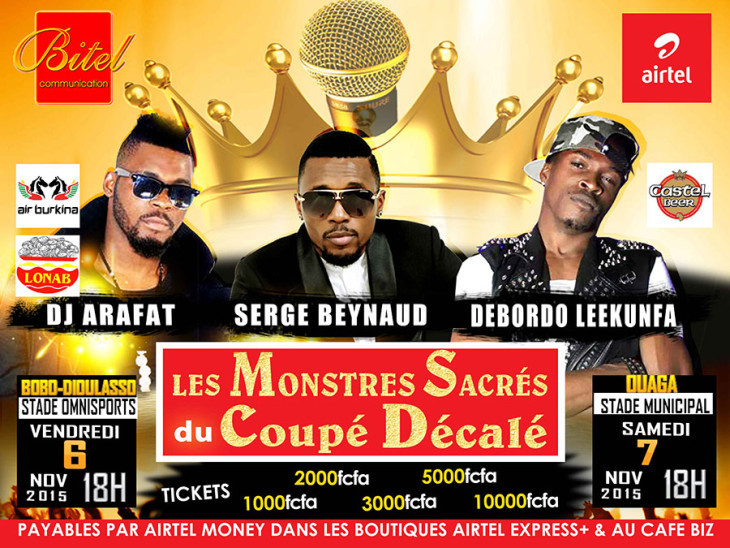Coupé-décalé music burst onto the scene in a war-torn Côte d’Ivoire and is all about having a good time and a flash lifestyle. In Noushi, the language invented by street kids in Côte d’Ivoire, “coupé-décalé” means to “get rich quick by any means and then do a runner”.
Given the somewhat dubious nature of the phenomenon and the outlook of its creators and devotees, this new Ivorian movement has had a rather wary reception. The music is neither poetic nor militant and makes no claims for itself. Its sole aim is to entertain and offer fans the chance to show off their designer-label clothes and flash their money about in public. In spite of this extremely frivolous and unconventional image, coupé-décalé has been all the rage on the dance floor since the summer of 2003, is growing all the time and is popular throughout West Africa.
Under DJ Jacob, who is credited with starting the craze, the phenomenon took off in the Nelson in 2000 and then caught on in the Atlantis and the Alizée – all black nightclubs in Paris. Coupé-décalé consists of a computerised circular beat coupled with Ivorian rhythms, rounded off with samples of ndombolo, the popular Congolese style. The lyrics, essentially a stream of Noushi onomatopoeia and metaphors, are inspired by the griot tradition and celebrate those nightclub customers who throw the most money about. A group of these Ivorian clubbers, well known on the Paris scene, formed a club calling itself the Jet-Set – a sort of collective of prominent consumers and “donors” who go to all the coupé-décalé evenings, flinging into the air twenty and even fifty-euro notes. It’s similar to the 1980s sapeur phenomenon (see Congo chapter).
It was Douk Saga, one of the members of the Jet-Set, who made the first coupé-décalé recording in 2003, called “Sagacité”, stealing a march on DJ Jacob in Paris and his alter ego, DJ Kaloudji in Abidjan. Today there are more than twenty coupé-décalé DJ-singers and the genre represents around forty per cent of Côte d’Ivoire’s musical output. Congo and the Democratic Republic of Congo have their own leading coupé-décalé DJs: DJ Zidane and TV Cinq, respectively. The best-known DJs are DJ Jacob, DJ Kaloudji, Douk Saga, Serpent Noir, DJ Arafat, Innocent Versace and the Résistance DJ collective, each selling in the tens of thousands.
The first coupé-décalé compilation appeared in 2005 and the first big-venue outing was at the Bataclan in Paris in April that year. This was followed by a tour of France, Switzerland, Italy and Germany.


